Going 50 Rounds: A breakdown of an NFBC Draft Champions fantasy draft
Follow theScore's fantasy feed on Twitter (@theScoreFantasy) for the latest news, features and more.
There's no feeling quite like staring at the queue in your fantasy baseball draft and finding yourself tormented by a decision over whether to pick Joey Wendle or Nick Ahmed.
These kinds of situations are uncommon to the majority of fantasy owners, but players regularly encounter scenarios like this over the course of the National Fantasy Baseball Championship's 50-round Draft Champions format. It's the Ironman Triathlon of fantasy drafts, requiring a vast knowledge of 25-man rosters, position battles, prospects and a whole lot more.
This is one of the most intriguing league formats you'll find. Each owner builds a 50-man roster consisting of the normal 23-man active roster (2 C, 1 1B, 1 2B, 1 SS, 1 3B, 1 CI, 1 MI, 5 OF, 9 P) along with a 27-man bench. The 50-player roster you select is your team for the entire season - no trades, no waiver claims, no minor-league reserve, no free-agent periods.
Since you can't add undrafted players, your bench essentially acts as your own personal waiver wire. The league follows a rotisserie scoring format, with lineup changes allowed every Monday. In another interesting wrinkle, you make a list of slot preferences prior to the draft, and are given a spot based on priority. Want to draft in the middle? Make it your No. 1 preference.
Here is how I made out in my first Draft Champions league; I will spare you a round-by-round synopsis, focusing instead on my overall strategy and how I was able to execute it:
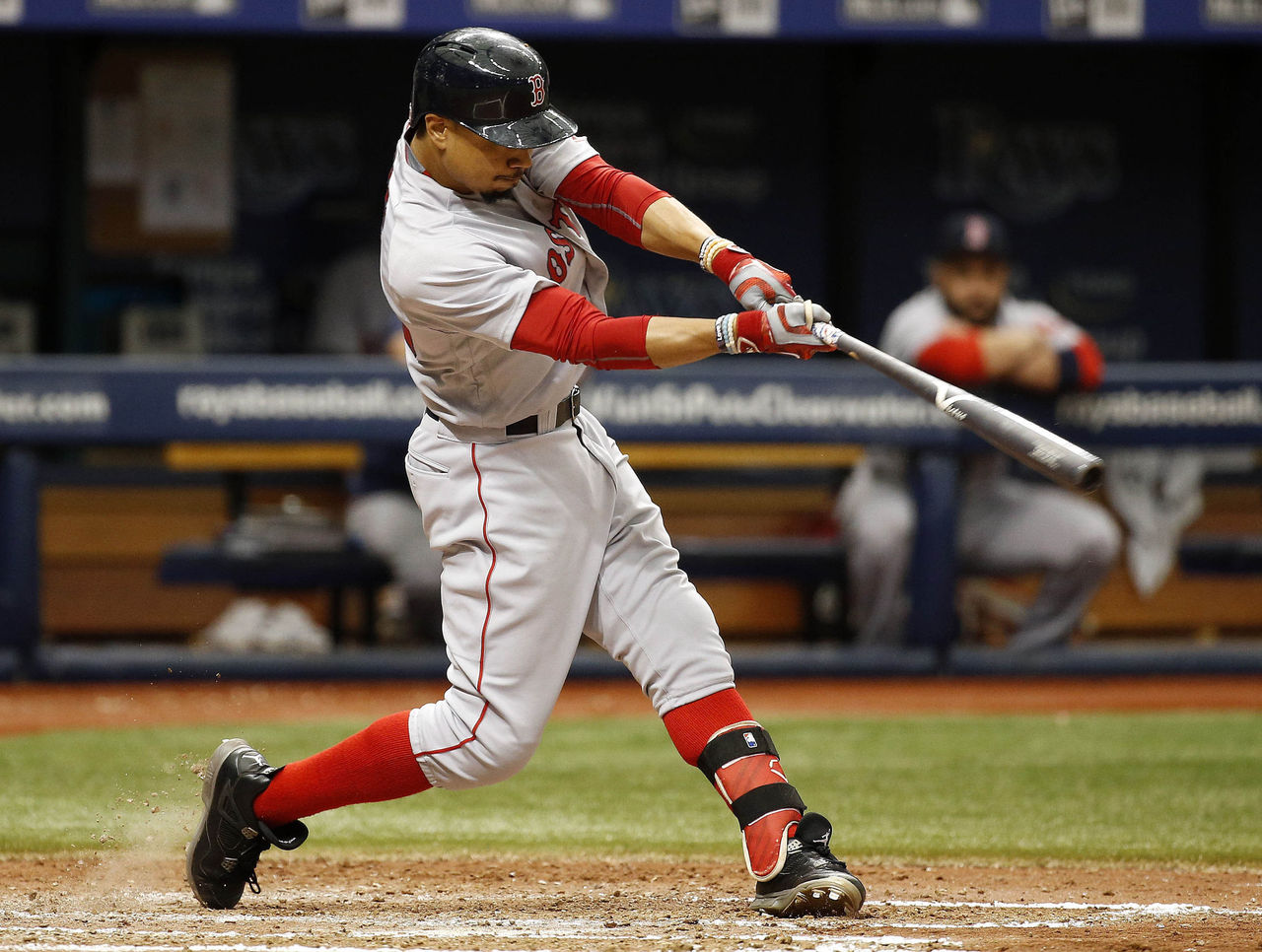
(Photo courtesy: Action Images)
Pre-Draft Prep
Preparing for a 50-round draft is nothing like 20-to-25-round formats - especially in Draft Champions leagues, where every roster spot is so critical. My inclination was to play it safe wherever possible, since a failed risk is comparable to throwing a roster spot away. Baseball is more than ever a war of attrition, so your bench has to be the best in the league.
Arming myself with a copy of the 2017 Baseball Forecaster was my first step; it's the most comprehensive fantasy resource available, and is even more valuable in deep formats like this. From there, I just made sure I had sites like FanGraphs or Rotowire handy. There is such a thing as too much information, so you should really stick to your go-tos to avoid cluttering your mind.
I desperately wanted a draft slot on an end, since I prefer being able to fill two roster holes in short order. I was given my third choice, which was the No. 14 slot in our 15-team league. While it took me out of the running for a top-10 player, I was actually happier to be able to snag two of the top 17 players in the draft. Nailing the early rounds is even more important in this format.
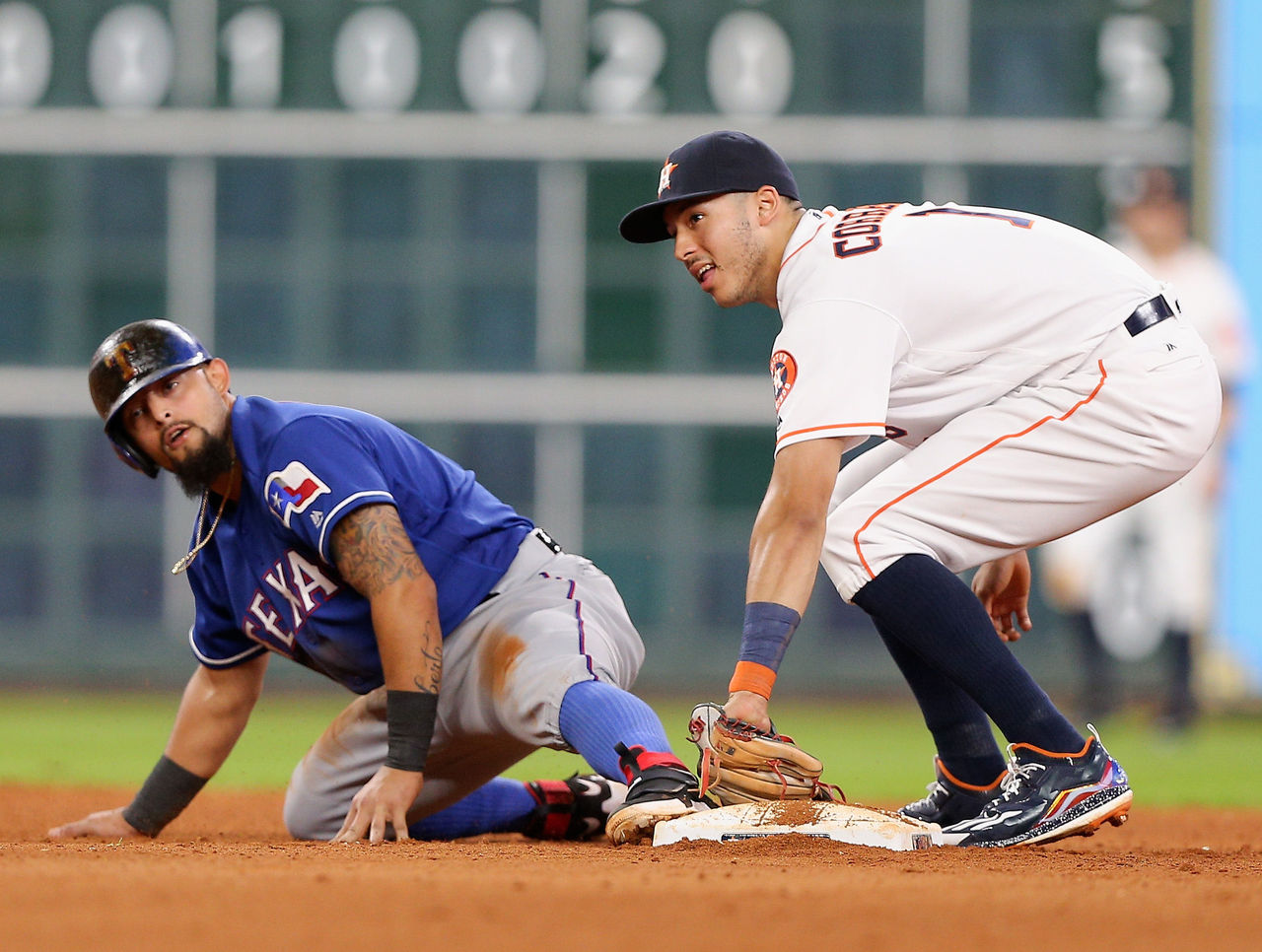
(Photo courtesy: Getty Images)
Rounds 1-5
Round 1 (14th overall): OF Charlie Blackmon, Rockies
Round 2 (17th overall): SS Carlos Correa, Astros
Round 3 (44th overall): OF A.J. Pollock, Diamondbacks
Round 4 (47th overall): 2B Rougned Odor, Rangers
Round 5 (74th overall): CL Roberto Osuna, Blue Jays
I had decided going in that I wanted as many four- and five-category studs as I could acquire, rather than relying on players who excelled in one or two categories and were deficient in the others. A core of Blackmon, Correa, Pollock and Odor, given good health, will help me in all five categories - and I was ecstatic at being able to shore up my middle infield with two studs.
You're probably wondering where the starting pitchers are. I opted to build an offense-heavy lineup early on, believing that I was well-equipped to find great pitching value later on. You simply can't do that when it comes to closers - they go flying off the board at breakneck speed in this format. So I took the plunge and landed Osuna, who should be a top-10 stopper option.
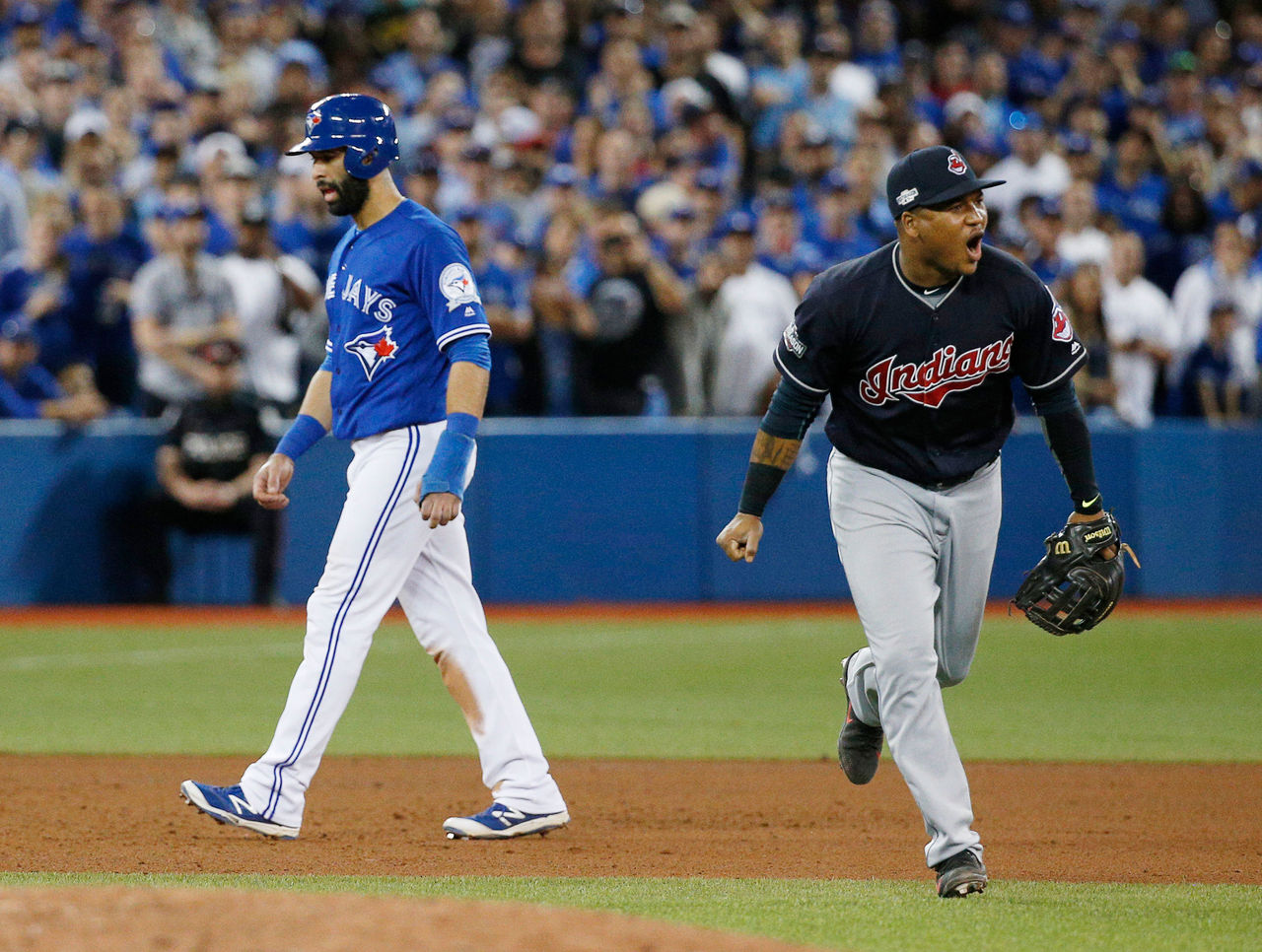
(Photo courtesy: Getty Images)
Rounds 6-10
Round 6 (77th overall): CL Seung Hwan Oh, Cardinals
Round 7 (104th overall): 3B/OF Jose Ramirez, Indians
Round 8 (107th overall): OF Jose Bautista, Blue Jays
Round 9 (134th overall): 1B Brandon Belt, Giants
Round 10 (137th overall): OF Jackie Bradley Jr., Red Sox
I doubled down on offense and saves here, which might rankle some fantasy owners, but hear me out. With 50 roster spots, you can be as aggressive as you want to be at streaming starting pitchers for wins and Ks. And sure, I would love to have a Noah Syndergaard or a Corey Kluber as a rotation anchor - but that would have weakened my offense, so it was a no-go.
Instead, I built an elite offense that should keep me competitive in all five categories. A Blackmon/Pollock/Bautista/Bradley outfield is among the best in the league, and Belt still has room to grow as a power hitter. Oh is closer to 40 than he is to 30, but he was lights-out last season and will pile up save opportunities for what should be a competitive Cardinals team.
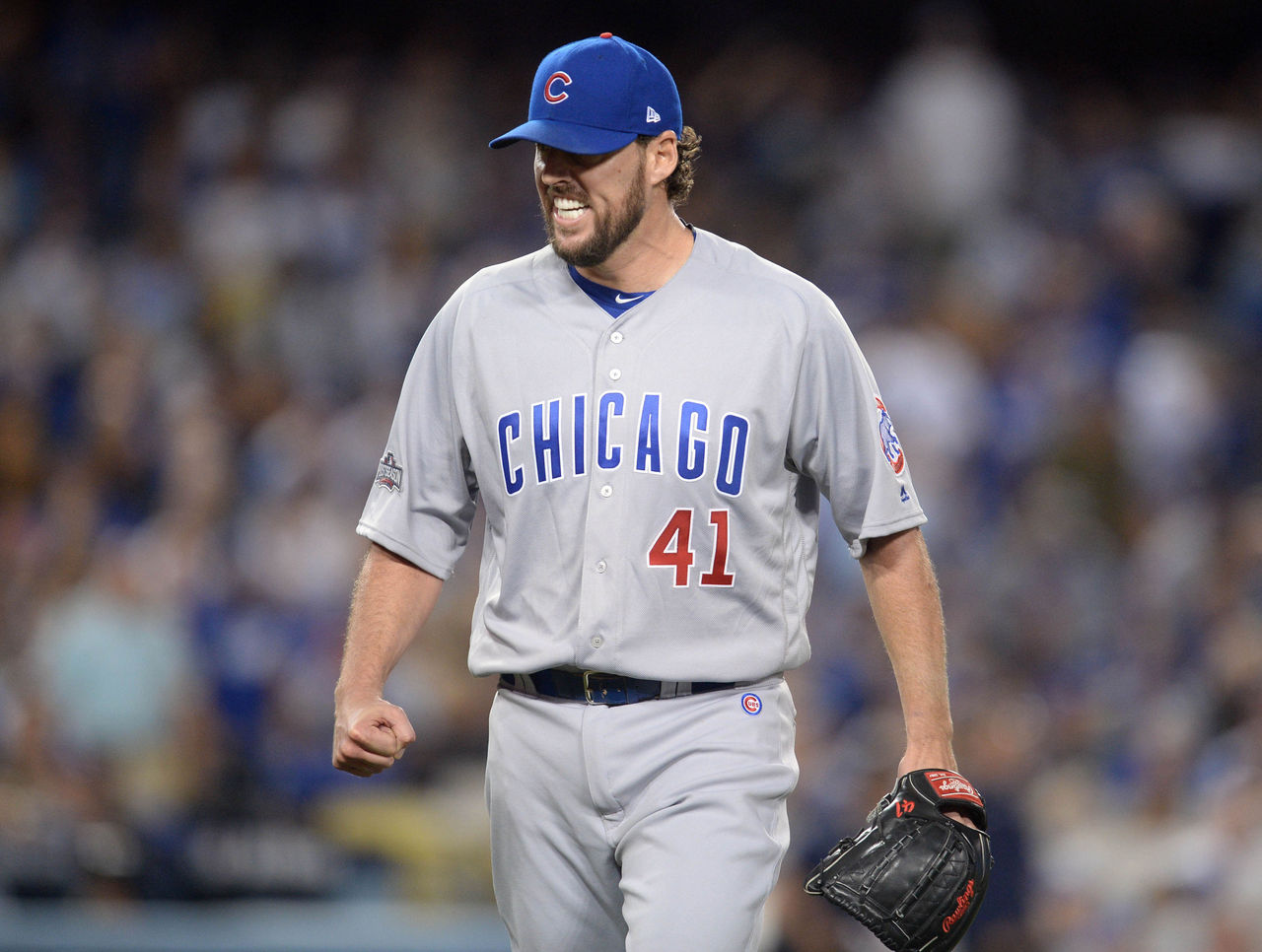
(Photo courtesy: Action Images)
Rounds 11-15
Round 11 (164th overall): SP Danny Salazar, Indians
Round 12 (167th overall): SP John Lackey, Cubs
Round 13 (194th overall): OF Dexter Fowler, Cardinals
Round 14 (197th overall): RP Dellin Betances, Yankees
Round 15 (224th overall): SP Jharel Cotton, Athletics
Here come the starters! Making Salazar my first SP was a no-brainer, since he has some of the most electric stuff in the game and is still young enough to sand off his rough edges. On the flip side, you know just what you're getting with the veteran Lackey - innings galore, terrific rate stats and the opportunity for 15+ wins pitching for a dominant Cubs team.
I couldn't pass up Fowler, who contributes a little something in all five categories and is one of the more underappreciated players in fantasy. Betances is a K/9 and rate-stat godsend capable of nullifying some of the negative impact of those high-ERA and high-WHIP starters you draft in the end game. I reached for Cotton, but he wouldn't have lasted 27 more picks.
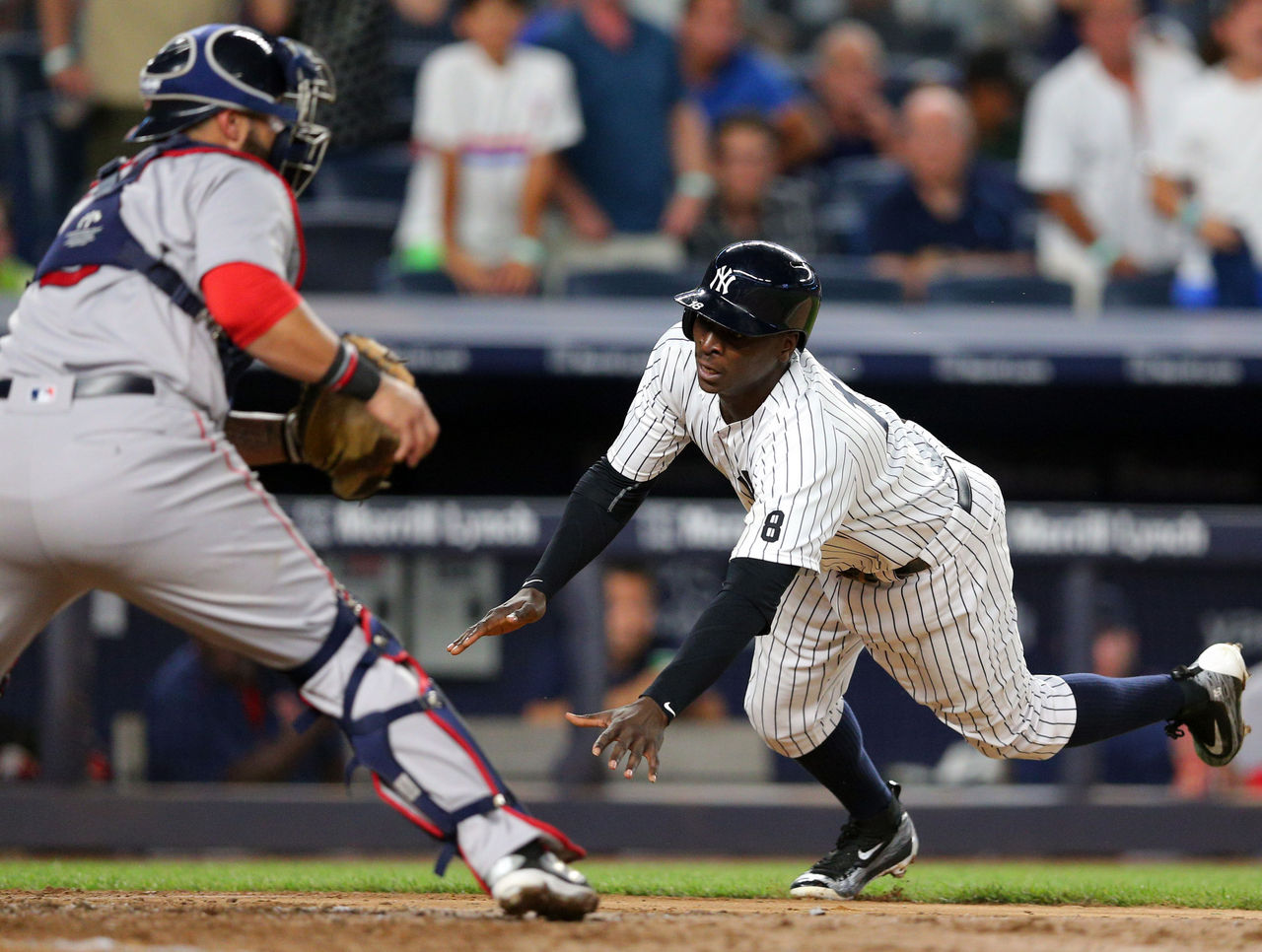
(Photo courtesy: Action Images)
Rounds 16-20
Round 16 (227th overall): SP Ian Kennedy, Royals
Round 17 (254th overall): C Sandy Leon, Red Sox
Round 18 (257th overall): SS Didi Gregorius, Yankees
Round 19 (284th overall): SP Collin McHugh, Astros
Round 20 (287th overall): SP Daniel Norris, Tigers
Right idea, wrong approach. While I was perfectly happy to wait on a catcher, I could have done a lot better than Leon as my C1. He isn't even assured the bulk of the playing time behind the dish in Boston. I might end up rueing that pick, though the hope here is that the rest of my lineup will be strong enough to minimize the dearth of catching production on my roster.
I feel good about my decision to wait on potential starting pitching bargains, and believe I landed a pair of high-K upside options in Kennedy and Norris. And with Osuna, Oh, and Betances in the fold - and more relief help on the way - I can afford to take a chance on guys whose rate stats are cause for concern in order to secure strikeouts and speculate on wins.
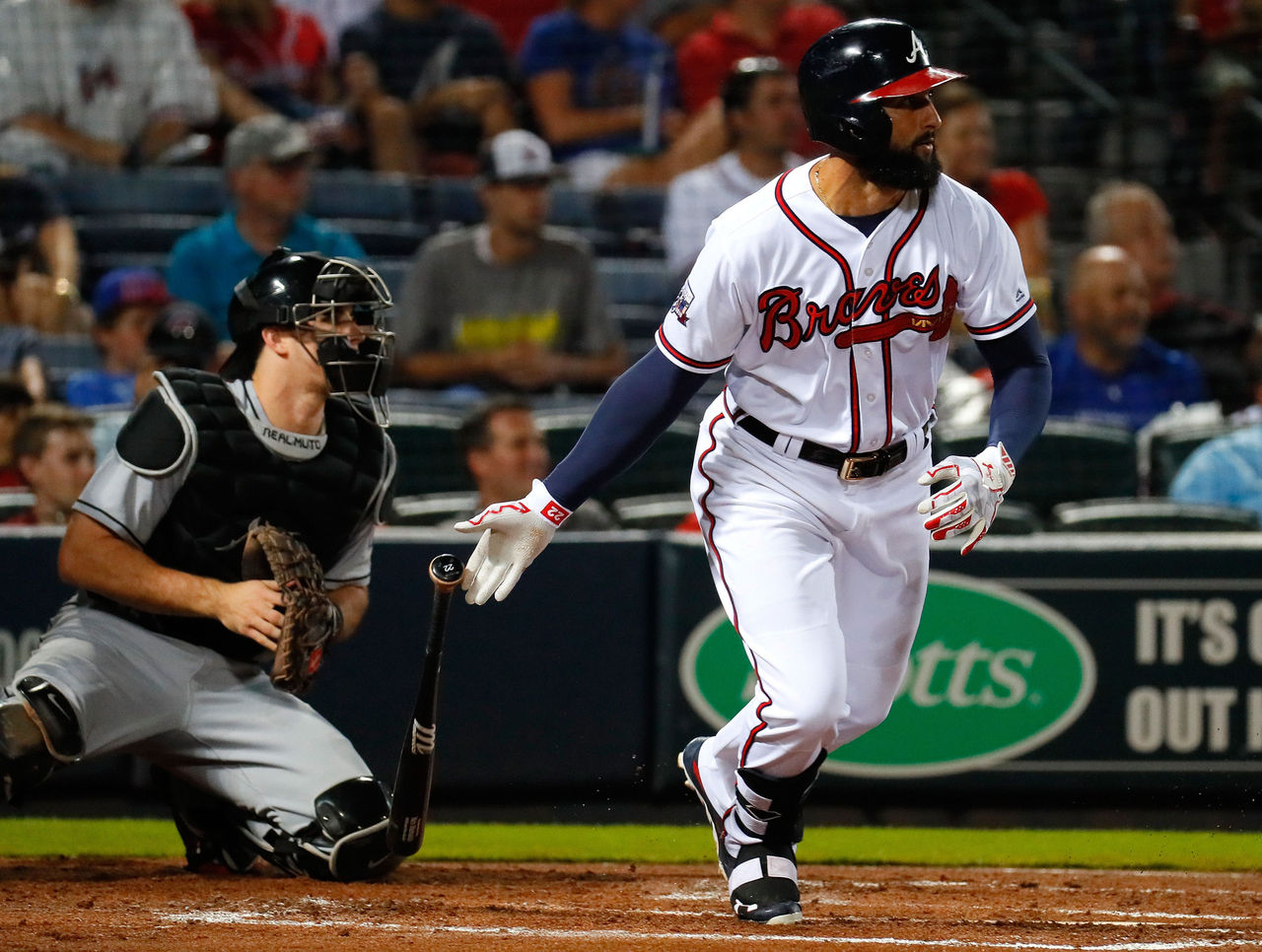
(Photo courtesy: Getty Images)
Rounds 21-25
Round 21 (314th overall): 1B Justin Bour, Marlins
Round 22 (317th overall): 2B Ryan Schimpf, Padres
Round 23 (344th overall): SP Chris Tillman, Orioles
Round 24 (347th overall): SP Jaime Garcia, Braves
Round 25 (374th overall): OF Nick Markakis, Braves
You really start to feel the grind right about here; no player is close to a perfect choice, and finding the right fit for your lineup gets increasingly more difficult. I opted for a pair of one-dimensional power hitters in Bour and Schimpf, as I felt a little light on home runs. Neither player will contribute much in batting average, but I feel like I'm well covered off in that area.
From there, I took a shot on a pair of shaky starters in Tillman and Garcia. I feel better about the latter, as Tillman's significant second-half K/9 dip has me worried about whether fewer strikeouts is his new normal. Garcia would be better off getting traded to a good team, but he's reliable as long as he stays healthy. Markakis is fantasy tofu: Utterly boring, but kind of good for you.
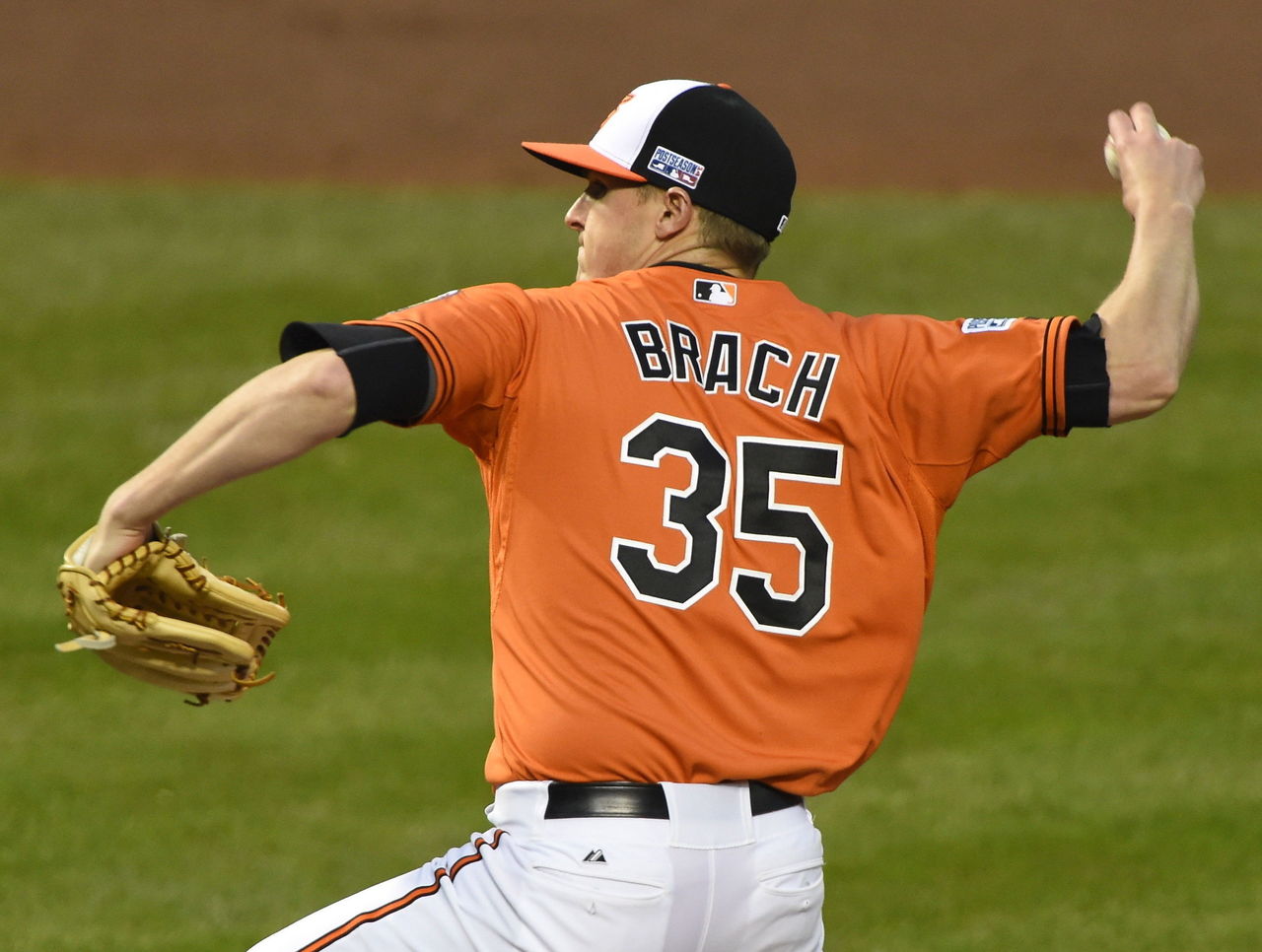
(Photo courtesy: Action Images)
Rounds 26-30
Round 26 (377th overall): RP Brad Brach, Orioles
Round 27 (404th overall): C Jason Castro, Twins
Round 28 (407th overall): RP Grant Dayton, Dodgers
Round 29 (434th overall): SP Mike Fiers, Astros
Round 30 (437th overall): SP Chad Kuhl, Pirates
This section of the draft was about meeting two objectives: Giving my pitching staff some rate-stat help and strengthening my stable of starting pitchers before things got really ugly. I was thrilled at how I dealt with the first goal, landing a pair of set-up men in Brach and Dayton who should blow away opposing hitters all season. They might also see save opportunities.
As for Part 2, it could have been worse. Both Fiers and Kuhl are expected to be their teams' fourth starters - and at this point in the draft, you're mostly left with fifth starters to choose from. Neither player moves the needle all that much, but Fiers is backed by a potent Houston offense and Kuhl should be a fixture in a mostly underwhelming Pittsburgh rotation.
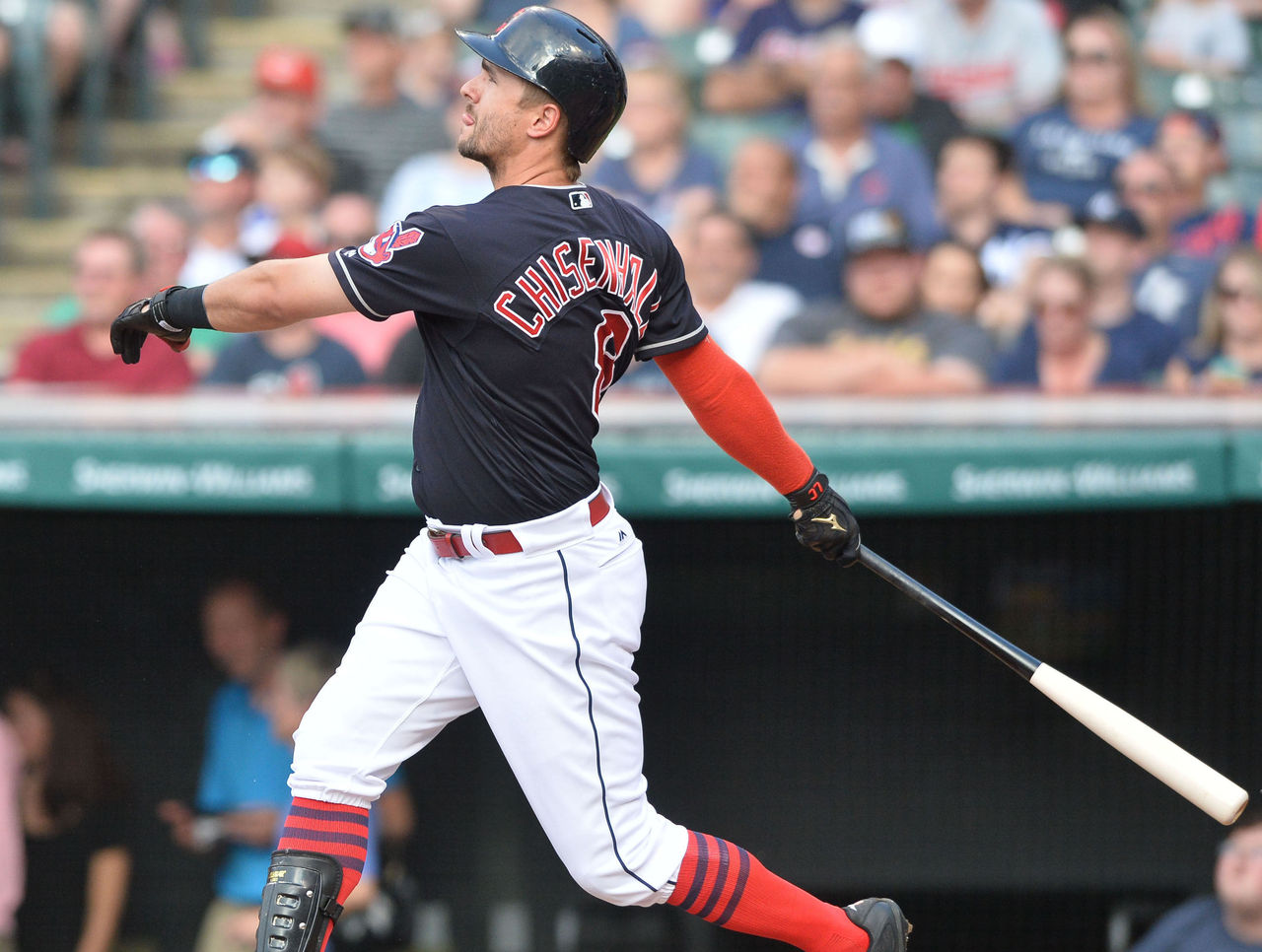
(Photo courtesy: Action Images)
Rounds 31-35
Round 31 (464th overall): 3B Jhonny Peralta, Cardinals
Round 32 (467th overall): OF Lonnie Chisenhall, Indians
Round 33 (494th overall): 3B Luis Valbuena, Angels
Round 34 (497th overall): RP Will Harris, Astros
Round 35 (524th overall): 1B Matt Adams, Cardinals
At this point, most of the top sleepers are off the board - so for me, doubling down on safe, lower-floor options is the preferred play. You won't see Peralta, Chisenhall, Valbuena or Adams atop any rotisserie category by season's end, but with good health, they'll be dependable fill-ins who won't kill your batting average and can contribute home runs, RBIs and runs scored.
I still plan to shore up other offensive positions and add starting pitching over the final 10 rounds, but for now, I want to add as many high-K/9, low-ERA-and-WHIP relievers as I can. With nine general pitching slots on the starting roster, you can occasionally lean toward a reliever-heavy approach to keep your rates under control - and I want the best guys possible for those roles.
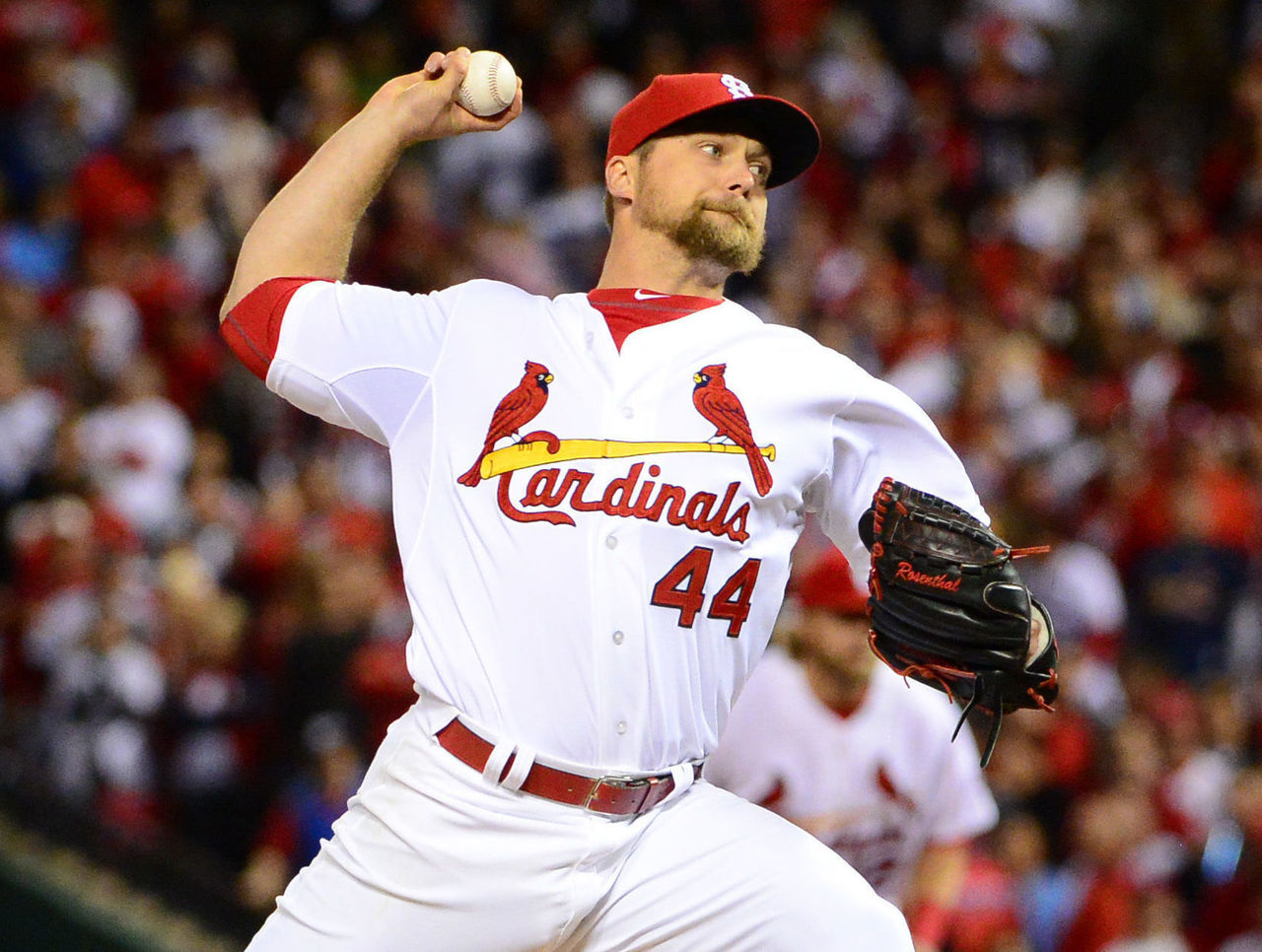
(Photo courtesy: Action Images)
Rounds 36-40
Round 36 (527th overall): RP Trevor Rosenthal, Cardinals
Round 37 (554th overall): OF Billy Burns, Royals
Round 38 (557th overall): RP Brett Cecil, Cardinals
Round 39 (584th overall): SP Chad Bettis, Rockies
Round 40 (587th overall): C Christian Bethancourt, Padres
This is the point in the draft where it's prudent to shore up areas of weakness using whatever means necessary. For me, that meant taking a shot on Bettis strictly for the win potential - Rockies pitchers are notorious anchors on your rate stats, so my plan is to use Bettis selectively and hope that I can get the best he has to offer.
With Rosenthal and Cecil in the fold, I have all but secured the majority of saves in the St. Louis bullpen. I wasn't able to do the same with Osuna, but between the three-headed Cardinals combo and a handful of reliable setup men who are next in line for saves on their respective teams, I should be competitive in that category.
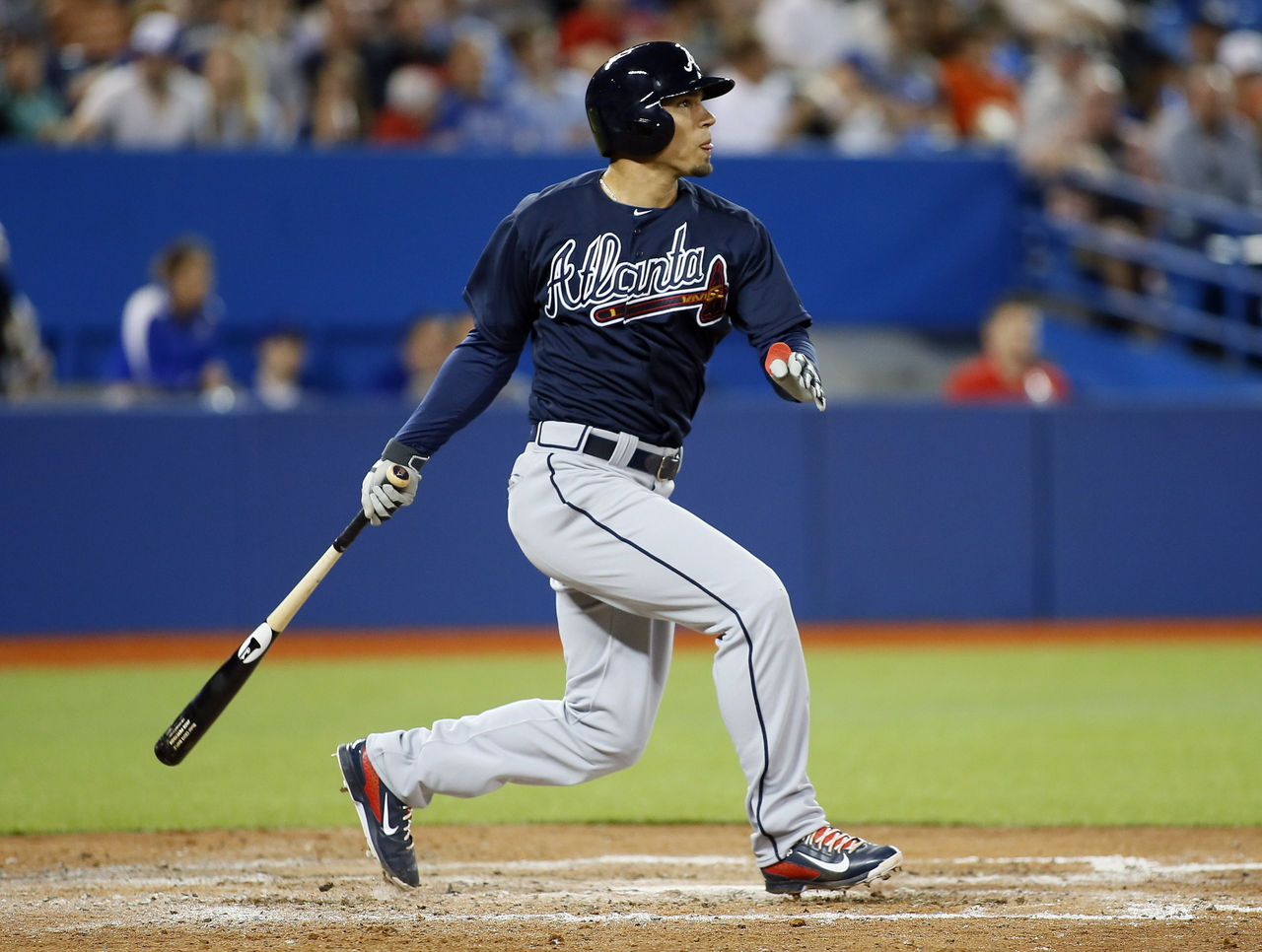
(Photo courtesy: Action Images)
Rounds 41-45
Round 41 (614th overall): 2B Jace Peterson, Braves
Round 42 (617th overall): RP Keone Kela, Rangers
Round 43 (644th overall): RP Derek Law, Giants
Round 44 (647th overall): 2B Dilson Herrera, Reds
Round 45 (674th overall): C Geovany Soto, White Sox
This section of the draft was quite a roller-coaster. I had drafted Peterson prior to the Braves acquiring Brandon Phillips in a trade from the Reds; I went from having a starting 2B by virtue of Sean Rodriguez's shoulder injury to landing a guy who might play twice per week. Not cool - although I was able to snag Herrera after the news broke. He could push Jose Peraza for the starting job.
Two of my other three picks in this round were about strengthening my already-solid bullpen with two more relievers who could see ninth-inning action if things go right. Ultimately, my starting rotation will be one of the worst in the league - but with a great group of relievers, I should be able to rein in the rate stats and compete in every category aside from wins.
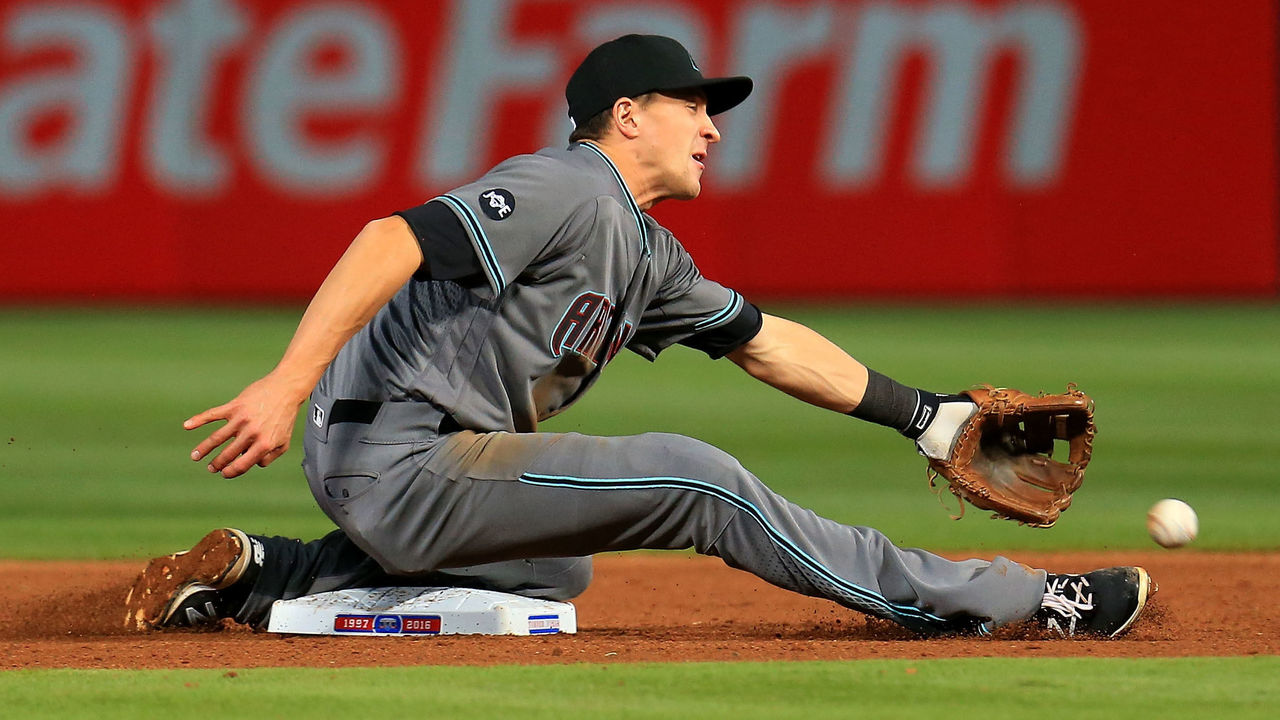
(Photo courtesy: Getty Images)
Rounds 46-50
Round 46 (677th overall): OF Kirk Nieuwenhuis, Brewers
Round 47 (704th overall): SP Jorge De La Rosa, FA
Round 48 (707th overall): SS Nick Ahmed, Diamondbacks
Round 49 (734th overall): 1B John Jaso, Pirates
Round 50 (737th overall): RP Liam Hendriks, Athletics
As you reach the end point in the draft, you're just hoping to find someone - anyone - who will contribute in the event of an injury to one of your core players. Nieuwenhuis is a cheap source of power, while Jaso can bolster your batting average if you need a boost there. Ahmed doesn't really do much in any one category, but as my third SS (and seventh MI), I'm not bothered.
The selection of Hendriks as my final pick puts an exclamation point on my primary strategy: Load up on high-leverage relievers who can shave my ERA and WHIP rates down to competitive levels, and might even find themselves in save situations. The strategy might very well backfire - but as any participant in a 50-round draft will tell you, any number of tactics are in play.
HEADLINES
- Phillies' Luzardo ejected after screaming obscenities at ump
- Cardinals' Contreras suspended 6 games for umpire altercation
- Rangers' Eovaldi likely out for season with rotator cuff strain
- Helsley booed off Citi Field mound after latest meltdown with Mets
- Hoffman blows another save as Twins rally in 9th to stun Blue Jays